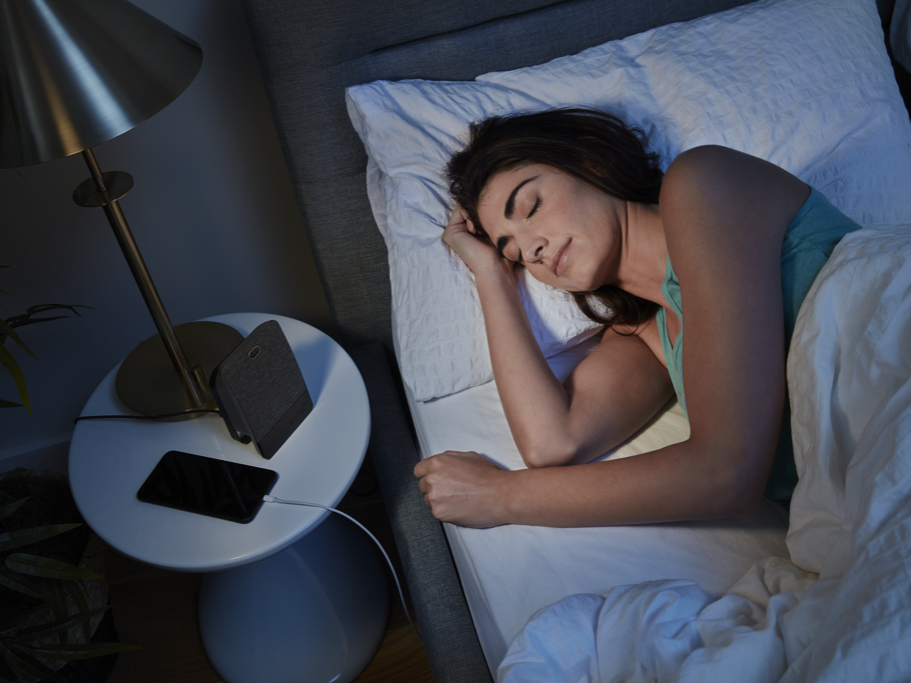The Case Against Orthosomnia: Guest Op-ed by Dr. Nate Watson

Dr. Nate Watson is chair of the SleepScore Labs Scientific Advisory board, serves as director of the Harborview Medical Center Sleep Clinic and co-director of the University of Washington Medicine Sleep Center, and is the former president of the American Academy of Sleep Medicine and American Board of Sleep Medicine.
Orthosomnia is a new term used by some in the sleep medicine community, which is starting to trend in health and wellness articles to describe when the process of measuring sleep data using consumer sleep technologies, like bedside trackers or wearables, starts to have a negative impact not only on the ability to sleep, but the experience of sleep itself. With so little scientific evidence to support its claims, I believe the notion that sleep quality worsens as a result of feeling “watched” by consumer sleep technologies is unfounded.
In order to better understand the psychology behind “orthosomnia” or the fear of being “watched” we need to reflect on the work of 18th century English philosopher Jeremy Bentham who created the “Panopticon.” This prison concept was a circular building with prison cells along the interior of the circle facing inward with the guard tower placed at the center of the building. The guard tower could watch every prisoner’s move from this vantage point, but the prisoners could not see into the guard tower making them unaware if they were being observed or not. As a result, they had to assume they were always “being watched.” This created a system of behavior control, also referred to as the “normalizing gaze.” Famed 20th century French philosopher Michel Foucault was a vocal critic of the “Panopticon” viewing it pejoratively as an architectural structure of modern disciplinary power, and as such an instrument to control human behavior.
Today the concept of the “Panopticon” extends beyond a physical prison design, to encompass current privacy concerns about being in an involuntary “state of surveillance” from security cameras and web search monitoring to location tracking of apps. While there’s a big difference with this scenario and the voluntary use of consumer sleep technology by an individual, it’s a useful way to understand some of the concerns motivating the conceptualizaton of Orthosomnia.
If we take a step further, consider that the nightly monitoring of consumer sleep technologies makes them susceptible to the Hawthorne Effect, whereupon the “normalizing gaze” of sleep tracking more often than not serves to improve sleep behaviors. Certainly, when an individual voluntarily decides to use a consumer sleep tracker, they are indicating a desire to better understand their sleep to improve it. When they use their device on a nightly basis, it signifies interest in objective measures of their sleep and, if all goes well, improvements in their sleep quality.
Another potential cause of anxiety involving sleep tracking is that many consumer sleep technologies leave consumers on their own when it comes to understanding their own sleep data and determining their path to improvement. Especially when it comes to solving something as complex as sleep, this is enough to give anyone not sleeping well just another reason to fear measuring their sleep. I encourage more consumer sleep technologies to help their users better understand their data and provide actionable steps to take, so they can achieve significant sleep improvements.
Finally, the negative connotation that sleep tracking equals “inevitable orthosomnia” is a narrow and flawed outlook. Instead, I offer a new term called “meliosomnia.” The Spanish root “melio” meaning “more well” and the Latin root “somnia” meaning “sleep.” In essence, the core function of consumer sleep technologies are to produce meliosomnia or to ‘make sleep better.’
So, instead of calling your at-home sleep tracker the boogeyman for your sleep woes, consider this. Under voluntary use, consumer sleep tracking technology functions to fulfill your explicit desire to help you achieve a better night’s rest.